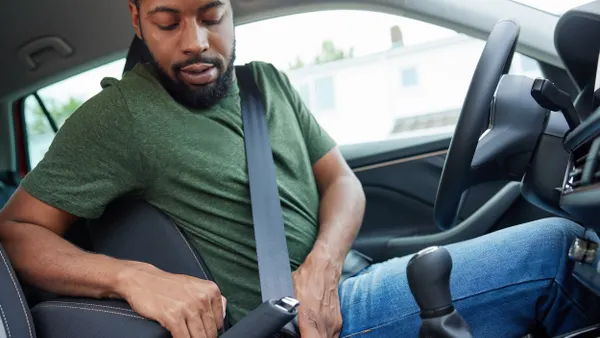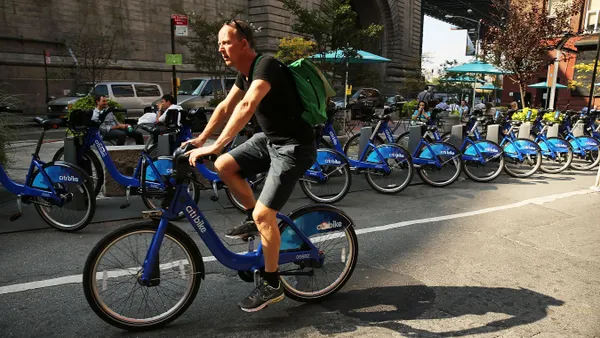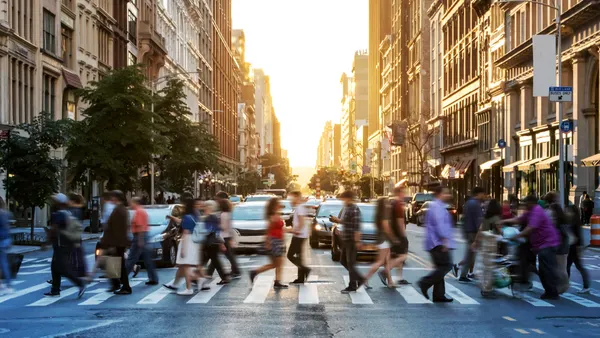Dive Brief:
- Uber plans to expand a safety feature that allows drivers and riders to take audio recordings of their rides to markets in the United States, according to a report in The Washington Post. The recordings would be used to investigate safety incidents.
- The recording feature was made available to users in Brazil and Mexico two weeks ago. It allows either the rider or drive to initiate recording. When the trip ends, either party can report a safety incident and submit the audio recording.
- An Uber spokesman told Smart Cities Dive the company could not say how the feature would expand, but that it "will be incorporating learnings and feedback from the pilot as well as adapting the feature to the local environment and laws."
Dive Insight:
Although Uber would not confirm expansion plans, The Post cited internal emails discussing plans to launch in the United States "soon." The New York Times also reports that Uber has piloted a video recording feature in some Texas markets.
In the pilot, the recordings are encrypted and stored on either the rider or driver's phone, with only Uber holding the encryption key. If the recordings are sent to Uber, they would be stored according to its privacy policy and only shared with law enforcement through proper legal channels like a subpoena or court order.
The recordings are part of Uber's safety push, in response to concerns about allegations of sexual assault, harassment, physical assaults and other misconduct. Uber has added an emergency button that lets riders and drivers directly reach 911 and created a "Ride Check" feature that detects an unexpected stop and makes sure everything is okay.
The company has also faced increased pressure from regulators and lawmakers, like a South Carolina bill that requires ride-hailing drivers to display illuminated signs and scrutiny from New York City lawmakers and members of Congress over safety policies.
The idea behind the monitoring is to create a record in the event of a safety incident, since many investigations can be hampered if an incident happens in a car with just two people. However, launching in the U.S. could be difficult given the patchwork of recording laws across states, which differ in requiring approval from one or both parties.
While cabs in some cities were outfitted with video cameras to prevent theft, there are sure to be privacy concerns with the potential for recordings in Ubers. The company has already faced pressure to do more to protect location and personal information for passengers, so privacy policies for recordings are sure to be closely watched by civil liberties advocates.









